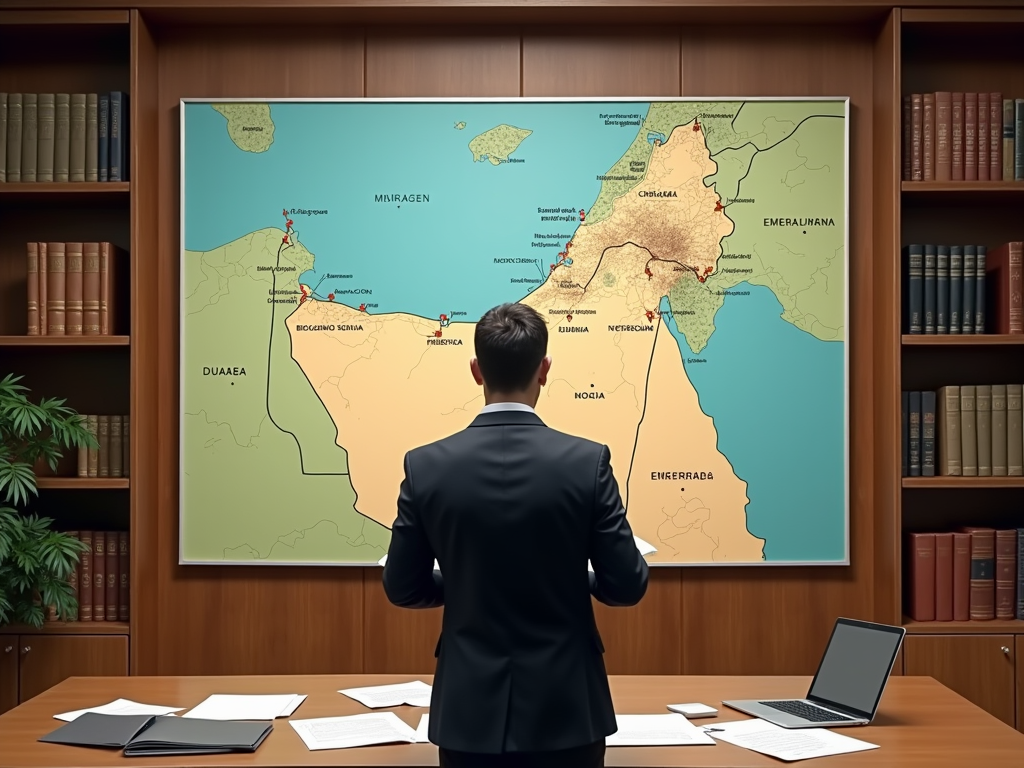
How Dubai’s Legal System Supports International Business
Dubai’s legal system plays a crucial role in establishing a stable environment conducive to international business. By offering a blend of modern regulations and traditional practices, it creates a friendly atmosphere for global ventures. The emirate’s approach focuses on protecting investors, facilitating easy business setup, and ensuring compliance with international standards. In this article, we will explore how Dubai’s legal framework is designed to support international businesses in their growth. We will also look into specific regulations, dispute resolution methods, and the role of free zones in fostering a business-friendly environment.
The Regulatory Framework for Businesses

Dubai has established a clear and comprehensive regulatory framework to facilitate international business operations. This framework is defined by various laws and regulations that govern commercial activities, including aspects like company formation, taxation, and employee rights. The main components of Dubai’s regulatory landscape include:
- Commercial Companies Law: This law defines different types of business entities and outlines the requirements for their formation. It includes provisions for limited liability companies, joint ventures, and partnerships.
- Foreign Investment Law: This law encourages foreign investment by allowing 100% ownership in certain sectors, which is a significant benefit for international businesses.
- Free Trade Zones: Dubai has several free trade zones where foreign companies can operate with tax exemptions and without local partnership requirements.
- Intellectual Property Rights: The legal provisions in Dubai protect the intellectual property of businesses, ensuring that patents, trademarks, and copyrights are enforced.
- Employment Law: This provides a regulatory framework for hiring foreign employees while safeguarding their rights and ensuring they are treated fairly.
Dispute Resolution in Dubai

One of the key factors that make Dubai an attractive destination for international business is its efficient dispute resolution mechanisms. The legal system provides multiple avenues for resolving conflicts, including:
- Court System: Dubai has an organized judicial system that includes specialized courts for commercial disputes, ensuring that cases are heard by experts in business law.
- Arbitration: Dubai is home to the Dubai International Arbitration Centre (DIAC), which is an internationally recognized institution for resolving commercial disputes. Arbitration is often faster and more cost-effective than court litigation.
- Mediation: This alternative dispute resolution method is encouraged for its ability to resolve issues amicably, saving time and resources for all parties involved.
- Dubai courts’ enforceability: Another significant advantage is that decisions made in Dubai courts are generally recognized and enforceable in other jurisdictions around the world.
Free zones in Dubai are designed specifically to attract international businesses by offering various incentives. Each free zone caters to specific sectors, such as technology, media, finance, and trade. Some of the benefits of operating within a free zone include:
- 100% foreign ownership of the business
- Full repatriation of profits and capital
- Zero personal income taxes
- Customs duty exemptions on imports and exports
- Simplified administrative processes for business registration
These advantages create a compelling case for international businesses to set up operations in Dubai’s free zones, making the emirate a global business hub.
Compliance with International Standards
Dubai’s legal system has evolved to comply with international legal standards, which significantly boosts investor confidence. The emirate has ratified numerous international treaties and agreements that cover trade, investment, and business operations. This compliance not only fosters transparency but also promotes ethical business practices. For example, adhering to anti-money laundering and anti-corruption laws aligns Dubai with global norms, making it a legally secure place for international commerce. Furthermore, regulatory bodies consistently update the legal framework to adapt to changes in international law, ensuring that businesses operate within a credible and safe environment.
Conclusion
Dubai’s legal system is intricately designed to support international business through a robust regulatory framework, efficient dispute resolution mechanisms, and attractive incentives offered by free zones. This creates an environment conducive to investment and international commerce, encouraging global businesses to establish a presence in the region. Furthermore, adherence to international legal standards enhances Dubai’s reputation as a trustworthy location for international operations. Ultimately, Dubai serves as a strategic gateway to the Middle East and beyond, providing substantial opportunities for growth and expansion for international businesses.
Frequently Asked Questions
1. What is the main benefit of Dubai’s Free Zones for international businesses?
The main benefit is the ability to maintain 100% foreign ownership, along with tax exemptions and simplified business registration processes.
2. How does the Dubai International Arbitration Centre (DIAC) facilitate dispute resolution?
DIAC offers a structured process for arbitration that is recognized internationally, making it an efficient way to resolve commercial disputes without lengthy court procedures.
3. What types of businesses can benefit from Dubai’s regulatory framework?
Businesses across various sectors, including technology, finance, trade, and media, can benefit from Dubai’s liberal foreign investment laws and favorable tax climate.
4. Are there protections for intellectual property in Dubai?
Yes, Dubai has established robust intellectual property laws that protect trademarks, copyrights, and patents, ensuring that businesses can operate safely and effectively.
5. Why is compliance with international standards important for businesses in Dubai?
Compliance with international standards boosts investor confidence, ensures ethical business practices, and allows businesses to operate transparently and effectively in global markets.